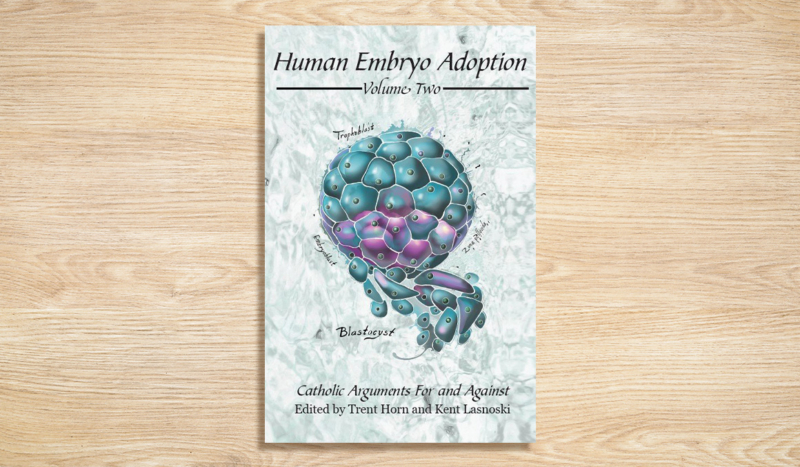
The National Catholic Bioethics Center
The National Catholic Bioethics Center (NCBC) is releasing a new book that compiles Catholic arguments for and against embryo adoption to provide moral theologians and other faithful with a comprehensive academic resource on the issue.
Trent Horn of Catholic Answers and Kent Lasnoski, an associate professor of theology at Wyoming Catholic College, edited the new publication, Human Embryo Adoption, vol. 2: Catholic Arguments For and Against.
“By gathering the best arguments from a variety of approaches on both sides of the debate, Human Embryo Adoption presents the positions, arguments, and replies as they currently stand and as they are poised to move forward,” according to an emailed press release from the NCBC. “This not only will help moral theologians move past the current impasses in the debate but will inform the consciences of faithful Catholics as they consider the practical question of what to do with offspring whose lives have been placed in a state of suspended animation.”
The release noted that it is the first academic book to analyze the arguments made since the Congregation for the Doctrine of the Faith issued Dignitas personae, which addresses embryonic adoption, in 2008.
“The volume organizes current perspectives thematically, pairing arguments from one side of the debate with corresponding arguments from the other side,” the release explained. “These involve questions on the proper use of sexual faculties, parenthood and the rights of the child, the theology of adoption, the example of the Annunciation, the Theology of the Body, and the works of mercy.”
The issue of embryo adoption was brought into the center stage of bioethical debate, especially after the rise of the practice of in vitro fertilization (IVF). IVF — a practice condemned by the Church as gravely immoral — creates many embryonic humans, most of whom are not implanted in the mother’s womb. Those who are not selected for implantation are destroyed, used for experiments, or, as often occurs, frozen indefinitely. According to the National Embryo Donation Center, there are an estimated 1,500,000 embryonic humans currently frozen in the US alone.
Dignitas personae stated that the frozen and abandoned embryonic humans “represent a situation of injustice which in fact cannot be resolved.”
The Catholic Church teaches, especially as it relates to the immorality of IVF, “that it is ethically unacceptable to dissociate procreation from the integrally personal context of the conjugal act: Human procreation is a personal act of a husband and wife, which is not capable of substitution,” states Dignitas personae, referencing previous popes’ teaching.
Regarding the question of what should be done about the frozen embryonic humans, Dignitas personae states: “Some of those who pose this question do not grasp its ethical nature, motivated as they are by laws in some countries that require cryopreservation centers to empty their storage tanks periodically. Others, however, are aware that a grave injustice has been perpetrated and wonder how best to respond to the duty of resolving it.”
Dignitas personae describes the idea of embryonic adoption as “praiseworthy with regard to the intention of respecting and defending human life,” but says it “presents however various problems not dissimilar to those mentioned” regarding IVF.
Concluding its section on embryo adoption, Dignitas personae reiterated the call of Pope St. John Paul II, who also regarded the situation as an unresolvable one, the injustice of which will only continue to mount as IVF-related practices go on.
In 1996, the saintly pope made an “appeal to the conscience of the world’s scientific authorities and in particular to doctors, that the production of human embryos be halted, taking into account that there seems to be no morally licit solution regarding the human destiny of the thousands and thousands of ‘frozen’ embryos which are and remain the subjects of essential rights and should therefore be protected by law as human persons.”
